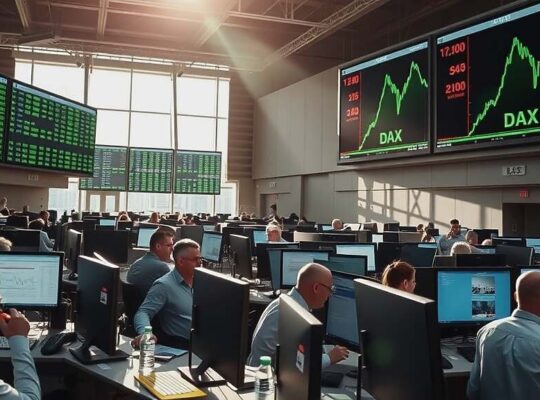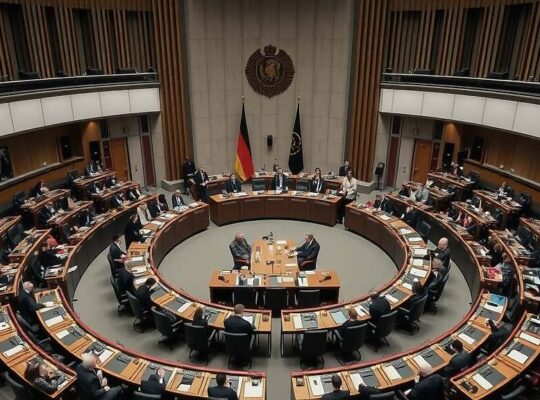Germany’s consumer confidence, battered for months, exhibits a muted stabilization towards the year’s close, according to a new analysis released Thursday by the GfK. While the data reveals mixed signals across key categories, the overall picture suggests a fragile outlook for the nation’s economy and raises questions about the government’s handling of ongoing economic headwinds.
The “propensity to buy” has seen a second consecutive increase, coupled with a decline in “thriftiness” providing a slight boost to the consumer climate index. GfK projects a marginal rise of 0.9 points month-on-month, bringing the indicator to -23.2 points. However, this tentative improvement is being heavily constrained by deteriorating expectations regarding income and the broader economic trajectory, a concerning trend with implications for growth.
“The consumer climate currently sits almost exactly at the level of the previous year” noted Rolf Bürkl of the Nuremberg Institute for Market Decisions. “This offers a small glimmer of hope for retailers facing the crucial year-end business period, suggesting a relatively stable Christmas season compared to last year”. However, this perceived stability masks deep-seated anxieties amongst consumers.
A crucial element dampening optimism is the ongoing decline in consumers’ expectations regarding their financial situation. While the November drop in this indicator was less severe than the precipitous fall witnessed in October, it nonetheless signals a persistent sense of unease about future earnings. The indicator currently stands at -0.1 points, a level not seen in eight months. Critics argue that government policies aimed at alleviating financial strain have been insufficient, leaving many households vulnerable.
The recovery in the propensity to buy, while welcome, also highlights a potential divergence in consumer behavior – a willingness to spend now despite anxieties about the future. This could ultimately prove unsustainable without a significant and demonstrable improvement in underlying economic conditions.
Perhaps most worrying is the subdued assessment of Germany’s economic outlook. Consumers remain hesitant, with the indicator declining slightly to -1.1 points. Despite remaining marginally above the level recorded a year ago, the persistent negative sentiment underscores a lack of confidence in a swift or substantial economic rebound. This reluctance to embrace a rosier outlook raises serious questions about the government’s credibility regarding its economic forecasts and highlights the need for more decisive action to restore faith in Germany’s economic future.












